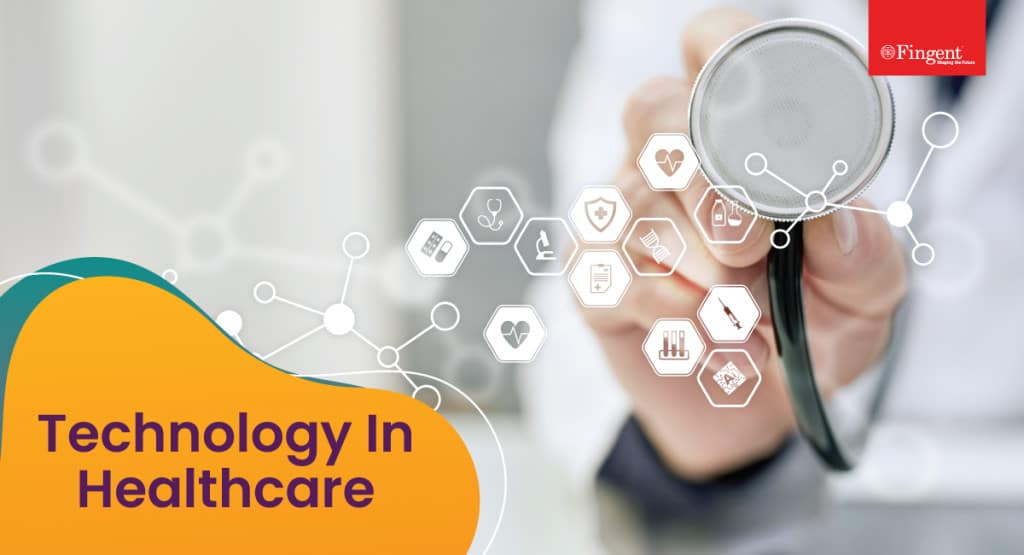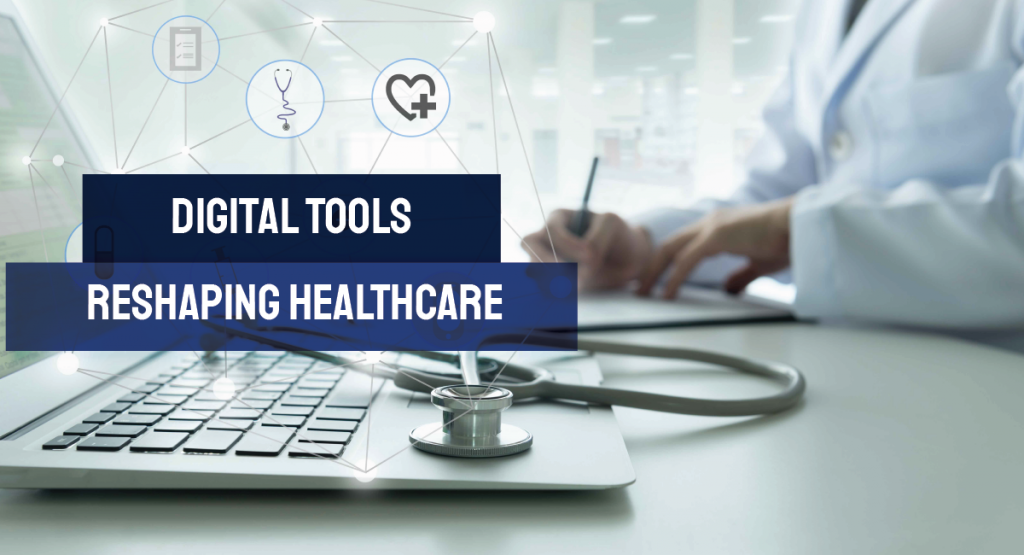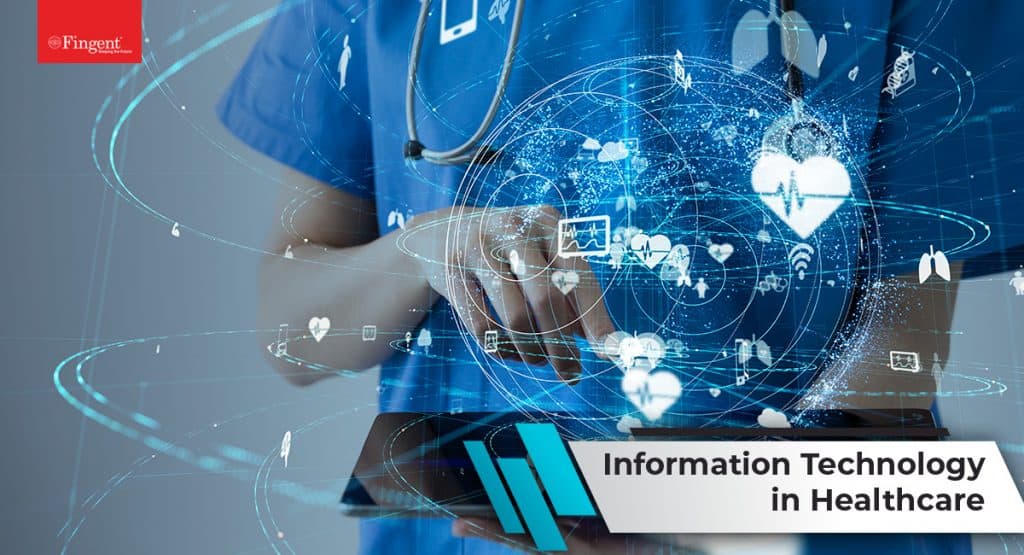Tag: health technology
Technologies that help optimize revenue and performance of your medical practice
There’s no denying that revenue is essential for any business. Sustained revenue flow keeps the employees paid, leaves the doors open, and the patrons happy. It is the same for medical practice as well. However, it can be challenging to optimize medical practice revenue and increase avenues to bring in more money. It is crucial to find strategies that the medical practice can maintain over time to ensure a steady cash inflow.
Additionally, as the COVID-19 pandemic continues to influence patient behaviors, it is pushing healthcare practices across the globe to re-evaluate their business operations and look for solutions that emphasize clinical efficiencies, improve patient revenue cycle management along with enhanced reporting and analytics tools.
Apart from the challenges related to the patient intake process during the pandemic, healthcare providers also have had to meet the sudden demand for virtual care by embracing digital healthcare technologies. Advanced technology in healthcare helps automate major processes, facilitate patient engagement efforts, and improve financial stability.
In this article, we share tips to optimize the revenue of your medical practice.
1. Robust financial management
Strong finance is the foundation of every business. You must consider what money is going out in the form of overhead costs, payroll, and miscellaneous expenses. Look for ways to cut unnecessary expenditures and save your practice some money.
There are chances that you are spending on something unnecessary at your practice or experiencing a small ROI due to a huge yet incompetent investment. If a service is not bringing you a good ROI, you should remove it. To overcome these issues, ensure you have a robust revenue cycle management system in place.
Custom RCM systems help improve the administrative and clinical functions associated with claims processing payments and revenue generation. The RCM system also facilitates the financial processes of identification, management, and collection between patients and providers. RCM helps you optimize your revenue cycle at all the points of the financial process. This enables you to collect and increase revenue whenever and wherever you should.
2. Leverage healthcare information technology
While the initial cost and ongoing investment may vary based on your practice, most of the following technological investments will help you save money and increase your revenue over time.
Read more: 7 Major Impacts of Technology in Healthcare
Example 1: Telehealth
Technologies like telehealth offer safer alternatives to in-person visits. With the ongoing pandemic, this technology helps provide safe care by connecting via virtual video visits. If your practice can allot for more appointments, then telehealth allows for more visits throughout your day.
Additionally, patient portals, self-check kiosks, and QR codes help reduce the risks of exposure and increase scheduling flexibility and clinical availability. Remote patient monitoring (RPM) helps bring about organizational resilience and stabilizes patient outcomes with better and safer alternatives to in-person visits.
Example 2: Appointment Management Systems
Most medical practices lose revenue due to no-shows, missed appointments, or late cancellations. Appointment management systems ensure that patients are notified well ahead of their appointment times. This will eventually provide your practice with a better chance of fulfilling appointment times and retaining revenue. It will also improve patient trust and credibility and allow your medical staff to stay organized at work.
Example 3: Practice Management System
This system includes all your appointment scheduling, billing, patient registration, claims processing, clearinghouse integration, and more. So, investing in an intelligent practice management system can bring billing in-house and retain previously claimed revenue from outsourcing.
Read more: Digital Tools For The Future Of Healthcare Providers
3. Intuitive reporting and automation
An Electronic Health Record(EHR) system includes an array of innovative tools that can significantly impact your practice’s productivity and profitability. The EHR technology should also have tools that offer flexible functionality and interactive engagement in addition to simple record keeping so that you can focus more on patient care and waste less time on troubleshooting staff errors or reconfiguring documentation notes.
Additionally, automated workflows, comprehensive reporting features, and insightful productivity metrics help simplify your practice’s workload and streamline task management. Picklists allow you to create templates, line-item defaults and define column choices so that information is readily available and easily accessible.
4. Optimize your medical billing
To maximize your medical practice’s revenue, you must include efficient and personalized medical billing software. It allows you to optimize the bills according to the prevalent industry standards. Most practices bill patients at allowable lower levels to avoid being audited. While you may not get audited, the practice leaves behind a lot of money. So, when you provide clinical service, make sure to document it properly and bill customers appropriately. Medical billing software makes auditing easy and relieves your admins from revenue management challenges. The software also ensures that your billing and coding staff are not making mistakes, leading to significant claims denial.
If claims denials, coding errors, or any other billing issues keep your practice from optimizing the income, you may consider building customized software to handle your organization’s specific challenges. Fingent specializes in developing customized medical billing software and healthcare application platforms by working closely with your medical practice. It allows you to lower denial rates, reduce errors, and streamline your revenue cycle.
5. Security and compliance
When it comes to healthcare, efficiency matters not just at the surface level but in every single aspect of treatment, including financing, scheduling, and reporting. To ensure your EHR can keep up with the regular system, it should include an educational database that allows providers to quickly train their staff and give the patient access to explanatory articles and videos. Keeping these resources available will help bring about positive outcomes and hassle-free software maintenance. Fingent offers custom software development, testing, implementation, maintenance, and support services for healthcare service providers. We’ve partnered with organizations like NHS to help them improve clinical process management using technology.
While compliance laws ensure patient health information (PHI) and overall safety of practice operations, you must make cybersecurity a top priority. This is especially true now with the shift to working remotely. Employees are more prone to hacker’s attempts to cease connectivity and steal confidential data. To overcome this, you must use virtual private networks (VPN) and reliable firewall software to safeguard vital business information. Our network security and IT infrastructure management services ensure that your business-critical assets are protected from cyber threats, and your proprietary information is protected 24/7.
Read more: The Application and Impact of Information Technology in Healthcare
Advanced technology in healthcare has helped providers choose and select a system that benefits their business. For example, medical billing software, revenue cycle management, appointment management, and patient engagement systems are a few solutions that providers should consider when employing an EHR solution. Healthcare technology improves patient resolutions, avoids preventable errors, and expands clinical availability.
Practice is a step ahead of theory. Our healthcare IT system developers follow this rule of thumb. Connect with our team to learn more about the technologies you can adopt to gain business benefits and significant cost savings.
Stay up to date on what's new

Featured Blogs
Stay up to date on
what's new



Talk To Our Experts
How Emerging Technology is Transforming the Healthcare Industry?
Technology has advanced by leaps and bounds and brought about changes in every industry. The Healthcare industry is no exception. Thanks to the advanced technology in healthcare, today, patients have access to some of the best and cutting-edge treatments. Also, patients can have access to innumerable minimally-invasive procedures that are less painful and result in better recovery.
With the world reeling under the COVID-19 pandemic, most countries are following lockdowns and social distancing to curb the spread. However, with the help of technology, remote consultations with experts, and the availability of intuitive mobile apps have helped patients (non-COVID) to receive improved patient care and quality healthcare experiences.
Read more: Digital Tools Reshaping the Healthcare Industry
The following are seven of the top impacts of technology in healthcare that are revolutionizing the field.
1. Improved Communication
Emerging technology in healthcare has facilitated improved communication within healthcare organizations. More and more medical professionals are leveraging technology such as video, AR/VR, real-time meeting capacities, and other online platforms to communicate and help spread knowledge in the field. Also, teleconferencing has made communication beyond geographic borders a breeze.
2. Electronic Medical Records
Gone are the days of bulky files and worn-out papers, Electronic Health Records (EHRs) or electronic medical records help save summaries of a patient’s medical records digitally. The digital summary can include lab reports, diagnoses, surgical interventions, prescriptions, and even details of hospital stays. Electronic medical records offer better insights into a patient’s health leading to accurate diagnosis and better patient care.
Digital records facilitate the sharing of information between specialists and labs thereby improving coordination. If properly maintained and implemented, digital records can also help increase accountability and reduce medical negligence.
Simply put, EHRs consume less time to create and are easier to maintain. They help medical professionals reduce the chances of making mistakes and make their life easier.
3. Big Data
For the uninitiated, big data refers to a large amount of data that is fast or complex and difficult to process using traditional methods.
Health technology allows medical accountants to gather big data in a short time. Data collection helps healthcare professionals to understand and learn cutting-edge techniques and trends. This data can be used for analytics and make predictions about possible epidemics and identify risk factors. Also, access to big data allows clinicians to recommend appropriate preventive steps more effectively and reduce deaths.
Read more: 5 Ways Big Data is Changing the Healthcare Industry
In addition to the collection of data, cloud storage of data ensures improved efficiency and accessibility with less wastage. This helps in research and development of new medical treatments and lifesaving formulations. Cloud storage is a secure and cost-effective solution with back-up and recovery features that are managed and maintained without additional server hardware. It is an invaluable advantage for medical research and analysis that helps in efficient health information exchange.
Read our case study: How a data analytics solution developed by Fingent enabled NHS to gain financial, clinical, and geographical insights and improved their visibility over KPIs.
4. Information and Communication Technology (ICT)
Today, approximately 95% of Americans have a mobile phone and most of them use it to access information of some kind from the internet. Health technology also has reformed its processes to connect with people efficiently.
ICT has linked not just medical professionals but also with the patients. From emails, telemedicine to smartphones and telemonitoring systems, all are used to share information. This is particularly useful for rural areas facing a dearth of facilities and/or specialists.
From diagnostic to management, ICT is improving constantly and streamlining how the healthcare industry functions and how patients are communicating with the care providers.
The new technology in healthcare allows care providers to compare health data of patients, identify risk factors, and recommend preventive measures. This has also given a boost to medical tourism helping many patients to seek consultations and second opinions from specialists practically from any part of the world. Patients can even virtually travel to another country to avail of specialized treatment or advanced surgery following remote communication such as video conferencing.
5. Improved Patient Care
Technology in healthcare has provided the healthcare community with advanced tools to improve patient care. Using EHRs, physicians can easily access the complete medical histories of a patient and make an informed decision. Physicians can even use apps to identify possible medication errors and help a patient’s safety.
Virtual Reality (VR) devices and apps help ease symptoms of anxiety and depression in older people and those suffering from mental illness. Augmented Reality (AR) also helps surgeons to perform complex surgeries. Both virtual reality as well as augmented reality devices can help improve health and fitness among patients. Some examples like robotic knee replacement and gene therapy in cancer treatment prove that technology in healthcare will only grow exponentially in near future.
Read more: Is Mixed Reality the Future of the Healthcare Industry?
Radio-frequency identification (RFID) technology has improved patient care by providing information about a patient’s crucial signs and temperature. RFID facilitates real-time tracking of location, identification, and communication.
In addition to VR, AR, and RFID, 3D printing is used to create prosthetics, hearing aids, and even customized dental devices.
6. Health Apps
Advanced technology in healthcare has resulted in the development of several health apps. This enables patients to have access to quick and accurate medical information using their smartphones. Patients can use these apps to keep track of medical appointments, receive reminders, and even access to test results easily. Health apps help people get healthier by offering customized solutions and track their food intake and activity levels.
Physicians can use these apps to access drug information to prevent side effects, solve any issues, and improve diagnosis. Physicians can communicate with their patients directly, record their vital signs, maintain logs about consultation and visits, and achieve better procedural efficiency.
Read more: 5 Essentials to an Effective Healthcare Application
7. Telemedicine
Telemedicine allows patients to consult with a specialist anywhere in the world. This new technology in healthcare facilitates critical care in emergencies, potentially saving lives. Telemedicine helps patients to use telemedical devices to receive home care and support via apps and video calls. Telemedicine makes it possible to transmit biosignal, medical images, and other crucial information to a specialist through asynchronous consultation. It means, neither the doctor nor the patient has to be present or online at the same time. This can significantly reduce the waiting time for patients and help improve delivery processes.
Healthcare professionals can monitor patients remotely via telemedicine. This can help manage chronic conditions effectively. Real-time interactions such as video conferencing can help with diagnosis, management, counseling, and patient monitoring.
Conclusion
To sum up, it can be said that technology has revolutionized healthcare and is expected to continue in the years to come. While developed nations have been able to harness health technology more efficiently, developing nations are not lagging. Today, more and more health providers are realizing the untapped potential of technology and leveraging it to streamline processes. There’s no denying that healthcare and technology go hand in hand and professionals will have to make the required changes and investments to improve the quality of healthcare.
We’re working with healthcare providers, medical analysts, life sciences experts, medical equipment suppliers, device manufacturers, and a host of players in the healthcare ecosystem to enhance their experience w.r.t. managing patient relations, delivering superior care, streamline treatment procedures and benefit from the rapidly growing medical data.
Talk to an expert right away and get to know how we can help your business take the next step quickly and comfortably.
Stay up to date on what's new

Featured Blogs
Stay up to date on
what's new
















